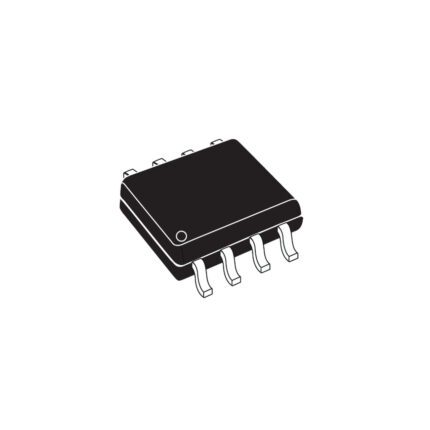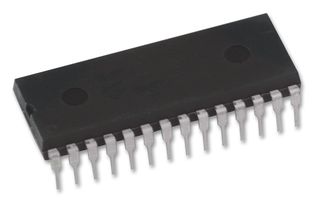TL431CD
The TL431 and TL432 devices are three-terminal
adjustable shunt regulators, with specified thermal
stability over applicable automotive, commercial, and
military temperature ranges. The output voltage can
be set to any value between Vref (approximately
2.5 V) and 36 V, with two external resistors. These
devices have a typical output impedance of 0.2 ?.
Active output circuitry provides a very sharp turn-on
characteristic, making these devices excellent
replacements for Zener diodes in many applications,
such as onboard regulation, adjustable power
supplies, and switching power supplies. The TL432
device has exactly the same functionality and
electrical specifications as the TL431 device, but has
different pinouts for the DBV, DBZ, and PK packages
TL497ACN
The TL497A incorporates all the active functions required in the construction of switching voltage regulators.
It also can be used as the control element to drive external components for high-power-output applications. The
TL497A was designed for ease of use in step-up, step-down, or voltage-inversion applications requiring high
efficiency
TL7705ACD
TL7757CD
The TL7757 is a supply-voltage supervisor
designed for use in microcomputer and
microprocessor systems. The supervisor
monitors the supply voltage for undervoltage
conditions. During power up, when the supply
voltage, VCC, attains a value approaching 1 V, the
RESET output becomes active (low) to prevent
undefined operation. If the supply voltage drops
below threshold voltage level (VIT?), the RESET
output goes to the active (low) level until the
supply undervoltage fault condition is eliminated.
TLC2274CN
1? Output Swing Includes Both Supply Rails
? Low Noise: 9 nV/?Hz Typical at f = 1 kHz
? Low-Input Bias Current: 1-pA Typical
? Fully-Specified for Both Single-Supply and SplitSupply Operation
? Common-Mode Input Voltage Range Includes
Negative Rail
? High-Gain Bandwidth: 2.2-MHz Typical
? High Slew Rate: 3.6-V/?s Typical
? Low Input Offset Voltage: 950 ?V Maximum at
TA = 25?C
? Macromodel Included
? Performance Upgrades for the TLC272 and
TLC274
? Available in Q-Temp Automotive
TLC251ACP
ion
The TLC251C, TLC251AC, and TLC251BC are
low-cost, low-power programmable operational
amplifiers designed to operate with single or dual
supplies. Unlike traditional metal-gate CMOS
operational amplifiers, these devices utilize Texas
Instruments silicon-gate LinCMOS? process,
giving them stable input offset voltages without
sacrificing the advantages of metal-gate
TLC3704ID
The TLC3704 consists of four independent
micropower voltage comparators designed to
operate from a single supply and be compatible
with modern HCMOS logic systems. They are
functionally similar to the LM339 but use 1/20th
the power for similar response times. The
push-pull CMOS output stage drives capacitive
loads directly without a power-consuming pullup
resistor to achieve the stated response time.
Eliminating the pullup resistor not only reduces
power dissipation, but also saves board space
and component cost. The output stage is also fully
compatible with TTL requirements.
TLC5940 16 Channel PWM Control LED Driver IC DIP-28 Package
The TLC5940 is a 16-channel, constant-current sink LED driver. Each channel has an individually adjustable 4096-step grayscale PWM brightness control and a 64-step, constant-current sink (dot correction). The dot correction adjusts the brightness variations between LED channels and other LED drivers.
TLC7528CN
The TLC7528C, TLC7528E, and TLC7528I are
dual, 8-bit, digital-to-analog converters (DACs)
designed with separate on-chip data latches and
feature exceptionally close DAC-to-DAC matching. Data are transferred to either of the two DAC
data latches through a common, 8-bit, input port.
Control input DACA/DACB determines which
DAC is to be loaded. The load cycle of these
devices is similar to the write cycle of a
random-access memory, allowing easy interface
to most popular microprocessor buses and output
ports. Segmenting the high-order bits minimizes
glitches during changes in the most significant
bits, where glitch impulse is typically the
strongest



















